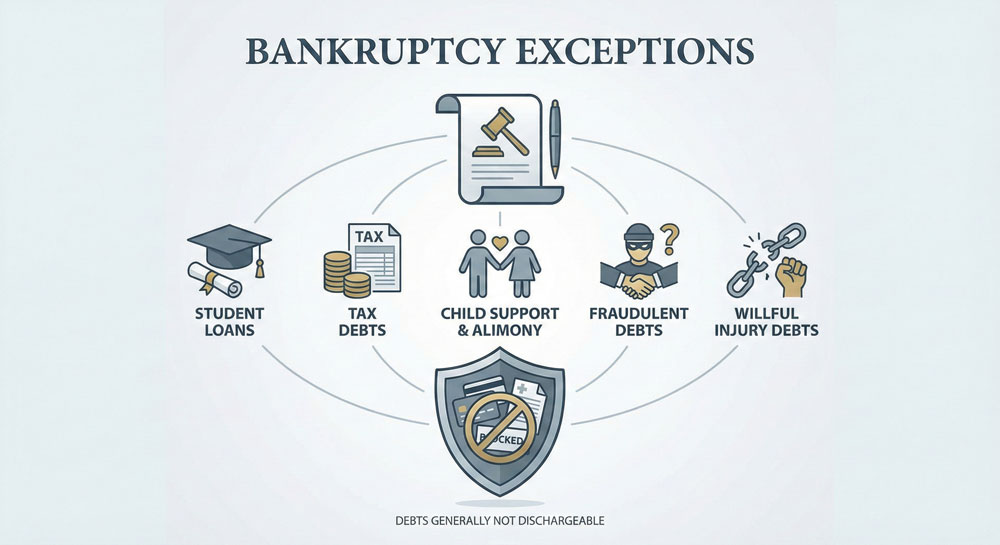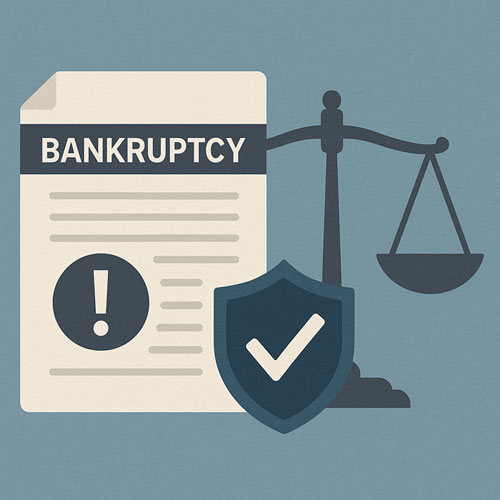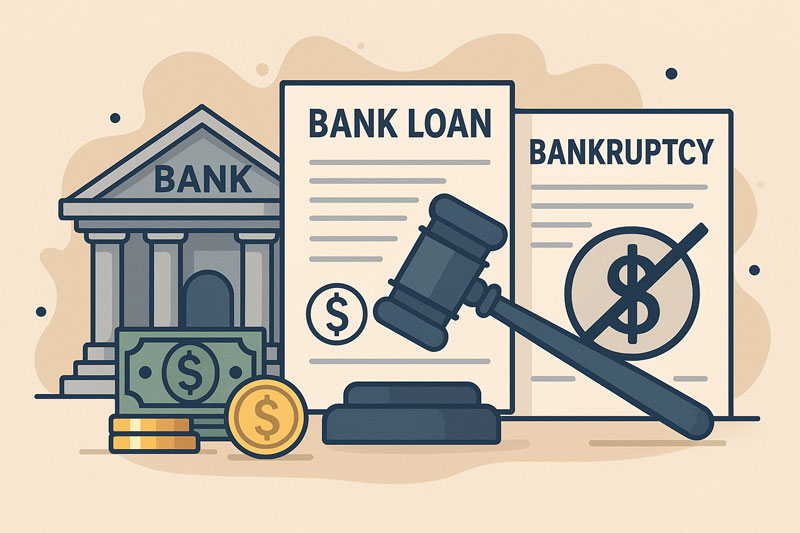Will I Lose My Property If I File Bankruptcy?
 An excerpt from Bankruptcy: A New Beginning by Seth Hanson
An excerpt from Bankruptcy: A New Beginning by Seth Hanson
The vast majority of my clients have no risk of losing any of their property. About 25% of my clients file Chapter 13 cases. A Chapter 13 bankruptcy does not involve the forced liquidation of any property. In fact, some people choose to file Chapter 13 as a way of avoiding the possibility of liquidation by the bankruptcy trustee.
Chapter 7 cases involve the possibility of liquidation, but only if your assets are too valuable to protect. California has very generous exemption statutes which result in the protection of all the assets of my clients in the vast majority of my cases. Approximately one out of every twenty-five of my cases involves the liquidation of assets. In most of those situations, the bankruptcy trustee generally does not want to go through the hassle, expense, and effort of actually liquidating an asset and will work out a payment plan where my clients “buy back” the non-exempt asset from the bankruptcy estate. In these situations, the bankruptcy trustee will also generally work out a payment plan over six months
to a year.
As an example of a payment arrangement with the Chapter 7 bankruptcy trustee, a person filing bankruptcy is permitted to exempt equity in a vehicle of $5,350, plus any unused portion of the “wildcard” exemption under California Code of Civil Procedure Section 703, et seq. The wildcard exemption has a value of more than $28,000. If one of my clients has used up all their wildcard exemption, has a car that is paid off and is worth $7,500, then there will be $2,150 in non-exempt equity. In that situation the bankruptcy trustee will likely work out a payment plan so the bankruptcy estate and my client’s creditors receive payment of the $2,150 in non-exempt equity.
Bankruptcy exemptions vary from state to state. For example, Tennessee has a very stingy system of exemptions. Some of these exemptions include:
Tennessee Exemptions:
Protection of Equity in Your Home: $5,000
Vehicle: No Protection
Bible: Fully Protected
Family Pictures: Fully Protected
Retirement Accounts: Fully Protected
Wildcard Exemption: $10,000
In contrast, California has very generous exemptions. In California, a client, with the guidance of any experienced attorney, must choose between two exemption systems—those under CCP 703 and those under CCP 704. Some of these exemptions are as follows:
California 704 Exemptions (usually only used if there is equity in primary residence)
Protection of Equity in Your Home: $100,000 for married couples and $175,000 if you are 65 or older
Vehicle: $3,050
Jewelry, heirlooms: $8,000
Personal Injury Claims: Fully Protected if the
award is necessary for support
Household Goods: Fully Protected
Retirement Accounts: Fully Protected
Wildcard Exemption: None
California 703 Exemptions:
Protection of Equity in Your Home: $26,800
Vehicle: $5,350
Jewelry: $1,600
Household Goods: Fully Protected (up
to $675 per individual item)
Retirement Accounts: Fully Protected
Wildcard Exemption: $28,255 (depending
on whether home equity is protected)
As you can see, California has some very generous exemptions, particularly with our wildcard exemption. I can have a client with $25,000 cash in the bank and will be able to protect it using the wildcard exemption. Usually, the only situation where liquidation of assets becomes an issue is when clients have a lot of equity in their home and we have to use the 704 exemptions. In those situations, we are limited in the amount of value in a car we can protect. We are also unable to protect a tax refund that may be coming. The trade off, though, is that we can protect up to $100,000 in equity in your residence or up to $175,000 in equity in your home if you or your spouse is 65 or older.
The vast majority of my clients do not lose any of their property when they file bankruptcy. And even when we have non-exempt assets, like a car, the bankruptcy trustees I work with are very reasonable in working out payment arrangements for my clients to keep the nonexempt asset in question.
Typical Assets Protected In Chapter 7
The following are typical assets we fully protect in a Chapter 7 case:
• Car #1—after deducting the secured loan no equity, no need to exempt
• Car #2—paid off with $7,500 equity—fully protected using $5,350 standard exemption and $2,150 of the wildcard exemption
• Bank accounts with $3,000 in deposits—fully protected using wildcard exemption
• $50,000 401k—fully protected using the retirement account exemption
• $20,000 IRA—fully protected using the retirement account exemption
• $2,500 worth of household furnishings and appliances—fully protected using household
furnishings exemption
• $500 worth of clothing—fully protected using clothing exemption
• $1,500 worth of jewelry—fully protected using jewelry exemption
• $100 cash on hand held outside bank—fully protected using wildcard exemption The above scenario is a very common one. In this scenario, we still would have over $20,000 in unused wildcard exemption.
For additional information contact your Yuba City bankruptcy attorney.
Categorized in: Assets



